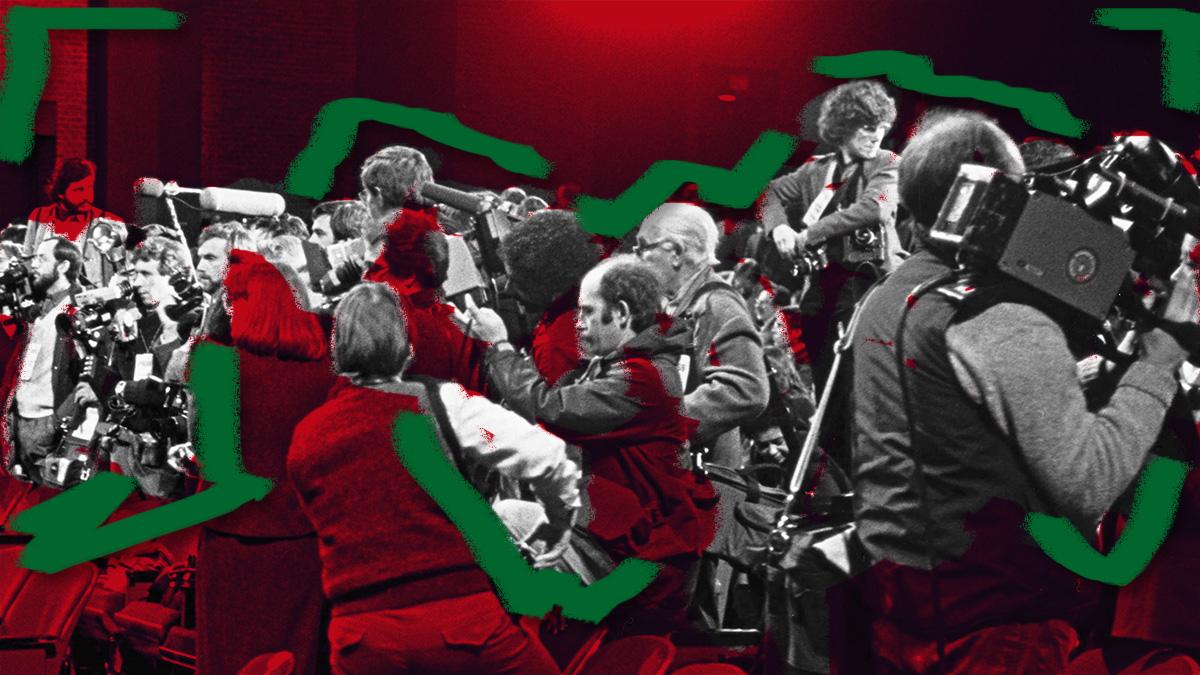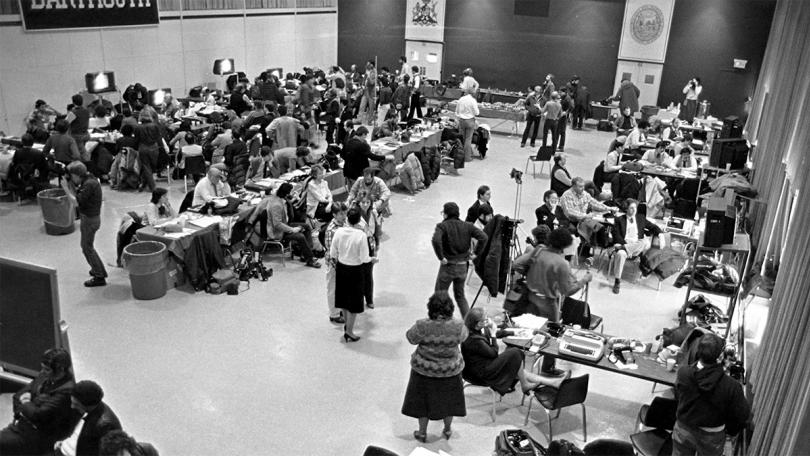1984 Debate: Technology

Technology: Putting on—and reporting about—the big show.
I cannot do justice to the ensuing scene when the Hopkins Center Production Staff called … to tell me the porta-johns would not fit through the door[.]
-- Anne Nelson, Rockefeller Center
Technology was crucial to a successful debate. With limited seats for Dartmouth faculty, staff, and students, the College used its computing facilities to randomly award individual tickets. Public television stations WENH Durham and WGBH Boston impressed with their precision and professionalism in mounting the broadcast. The Secret Service transformed a room in the Hanover Inn into a communications outpost and immediately denied access to anyone but its agents.

The press room in Alumni Hall.
Behind the scenes, the breakup of the telephone giant AT&T left questions about the availability of crucial long-distance telephone service. Televisions with cathode ray tubes were ubiquitous. Landline telephones in the temporary press room remind us of a time before cellular communications and mobile phones. Some reporters poised over electric typewriters. Others used the first successful portable computer, Radio Shack’s TRS 80 Model 100, launched the previous year.
Other technological and logistical challenges proved humorous. For the convenience and privacy of each candidate, eight portable toilets were to be made available backstage. (Nevertheless, Ted Koppel would admonish the candidates to moderate their water-drinking early in the three-hour debate.) As Rockefeller Center organizer Anne Nelson later observed in a report on the event and its planning:
"I cannot do justice to the ensuing scene when the Hopkins Center Production Staff called in a slightly hysterical state to tell me the porta-johns would not fit through the door, and furthermore, the truck driver refused to carry them into the halls because they weighed 250 pounds apiece."
Eventually, the problem was solved. “The rest is history,” Nelson continued, “and the “porta-johns” provided a much[-]needed sense of humility to the event.”
